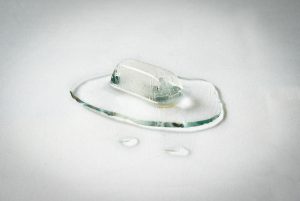Softening Our Sense Of Inferiority
 How we see the world and our self determines much of our experience. If we view life with eyes attuned to inferiority, we set our self up to notice the strengths and talents of others while being blind to our own.
How we see the world and our self determines much of our experience. If we view life with eyes attuned to inferiority, we set our self up to notice the strengths and talents of others while being blind to our own.
There are reasons why many of us grow up thinking so little of ourselves, and exploring those reasons helps us understand our behavior. More difficult is undoing a belief in our inferiority that colors everything we see.
Although no one can talk us out of our beliefs, sometimes we hear or read words that unlock something in our heart or mind, setting us free from limiting thoughts. The way something is said can occasionally soften what has been frozen within us. Poets have a knack for using words is this profound way.
Softening the Heart
In his book Anam Cara, the poet John O’Donohue writes about different styles of vision and how those styles, including “the inferior eye,” influence our thoughts and behavior.
O’Donohue’s words make it clear what we lose by seeing ourselves as inferior, and what we gain by letting that go. He writes,
To the inferior eye, everyone else is greater. Others are more beautiful, brilliant, and gifted than you. The inferior eye is always looking away from its own treasures. It can never celebrate its own presence and potential. The inferior eye is blind to its secret beauty.
The human eye was never designed to look up in a way that inflates the Other to superiority, nor to look down, reducing the Other to inferiority. To look someone in the eye is a nice testament to truth, courage, and expectation. Each one stands on common, but different, ground.
Working as a therapist, I have seen and felt the secret beauty of individuals with symptoms of depression, schizophrenia, bipolar disorder, and eating disorders. That beauty is the truth, its existence does not require belief. Maybe our secret beauty is only meant for others to see, and we know it is in our self because we see the beauty in others.
Photo credit: Tirso Lecointere / flickr
 Eating Disorder Self Test. Take the EAT-26 self test to see if you might have eating disorder symptoms that might require professional evaluation. All answers are confidential.
Eating Disorder Self Test. Take the EAT-26 self test to see if you might have eating disorder symptoms that might require professional evaluation. All answers are confidential.